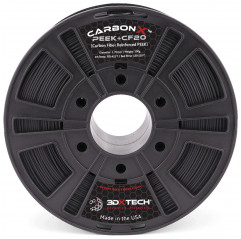Package contains: 1 x CARBONX PP+CF - Black / 1.75mm / 750g - 3DXTech
CarbonX? PP+CF is made using a specially formulated polypropylene copolymer reinforced with high modulus chopped carbon fiber. This filament is based on a patent-pending formulation that offers improved thermal properties and low shrinkage/torsion compared to competitive PP-based compounds.
The spools contain 750g of filament, but based on the very low density of PP+CF, this is the same amount of filament that would typically be found on a 1kg spool of ABS. This allows you to print lightweight and exceptionally rigid parts for medical, drone, jet ski, automotive applications, or any other application that would benefit from a lightweight, rigid, and chemically resistant material.
Advantages of PP+CF include:
Excellent resistance against a huge variety of chemicals
Low density and weight
Easier to print than most flexible materials and suitable for use with virtually any 3D printer
Does not absorb moisture, no drying required!
High strength and stiffness
Chemical Resistance of PP+CF
Because properties can change depending on the printing environment and the geometry and/or surface of the 3D model, you should always run your own tests, but polypropylene is known for its chemical resistances to a wide range of environments, including:
Acids: Acetic, Boric, Hydrochloric, Phosphoric, Stearic, Sulfuric, Uric
Bases: Ammonium, Barium, Calcium, Magnesium, Potassium, Sodium hydrocides
Solvents: Acetone, Ethanol, MEK, Phenol (10%), Water
Filament specifications:
Diameter: 1.75 mm (+/- 0.05 mm)
Recommended print settings:
Extruder: 220-250°C
Platen temperature: 23-60°C
Nozzle: We strongly recommend a hardened steel nozzle with a minimum diameter of 0.4 mm
Other: The ideal layer height is 60% of the nozzle diameter. We do not recommend to print layers lower than 0.2 mm with carbon fiber reinforced filaments
Platen preparation: we recommend the use of an adhesive
Heated chamber: not necessary
Media: AquaTek? Water Soluble X1 USM Universal Support Material is one of the few materials that can properly form a strong, temporary bond to the support. Polypropylene is notorious for being difficult to support and X1 USM is ideal for the job
Drying Instructions: not required
Abrasive Material
This material is particularly abrasive among 3D printing filaments. Users may find that standard brass nozzles are chewed up very quickly compared to standard wear. If worn, the nozzle diameter will expand inconsistently and the printer will encounter extrusion problems.
For this reason, we strongly recommend printing this material through a hardened steel nozzle rather than a softer metal. Hardened steel nozzles can often be inexpensive and easy to install depending on the printer manufacturer's instructions.
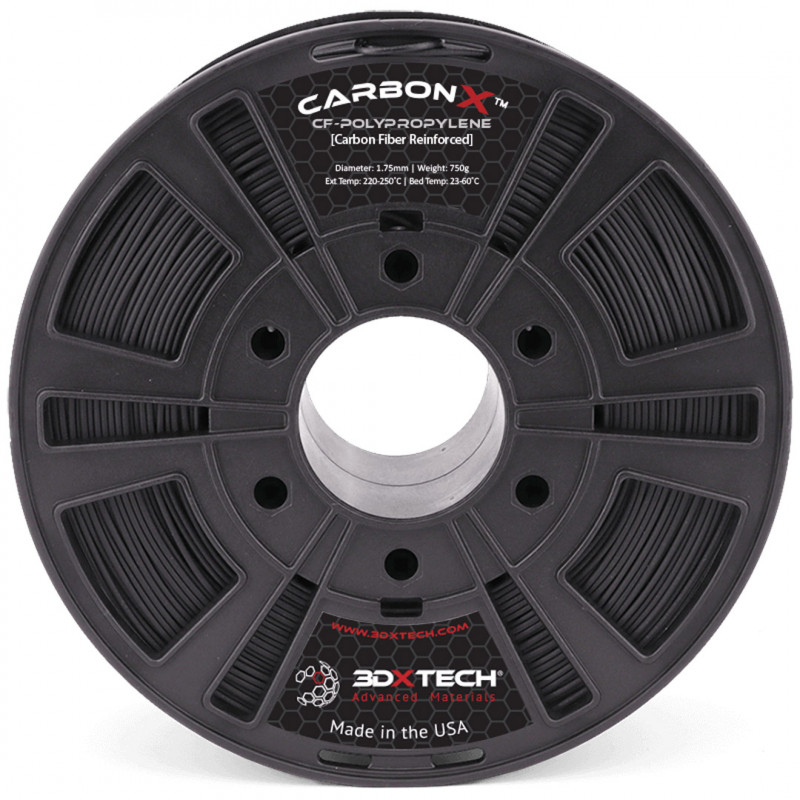

![CARBONX PA12+CF [CARBON FIBER NYLON] - Black / 1.75mm / 500g - 3DXTech Carbon 3DXTech 19210040 3DXTech](https://www.dhm-online.com/4900127-home_default/carbonx-pa12-cf-carbon-fiber-nylon-black-175mm-500g-3dxtech.jpg)
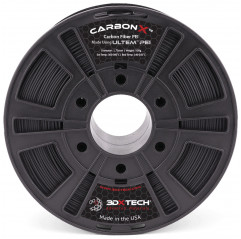
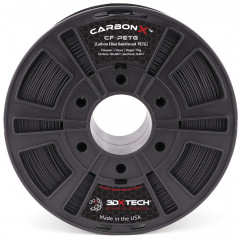
![CARBONX CF PEKK-A [AEROSPACE] - Black / 1.75mm - 3DXTech 500g Carbon 3DXTech 19210035 3DXTech](https://www.dhm-online.com/4900124-home_default/carbonx-cf-pekk-a-aerospace-black-175mm-3dxtech-500g.jpg)
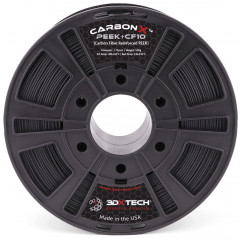
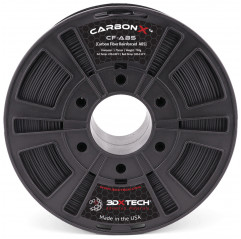
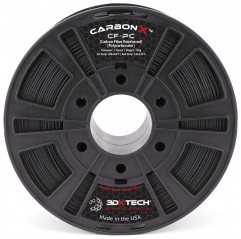
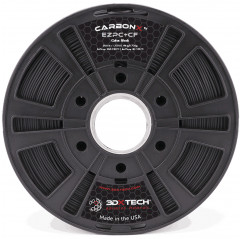
![CARBONX PA6+CF GEN 3 [CARBON FIBER NYLON] - Black / 1.75mm / 500g - 3DXTech Carbon 3DXTech 19210041 3DXTech](https://www.dhm-online.com/4900128-home_default/carbonx-pa6-cf-gen-3-carbon-fiber-nylon-black-175mm-500g-3dxtech.jpg)
